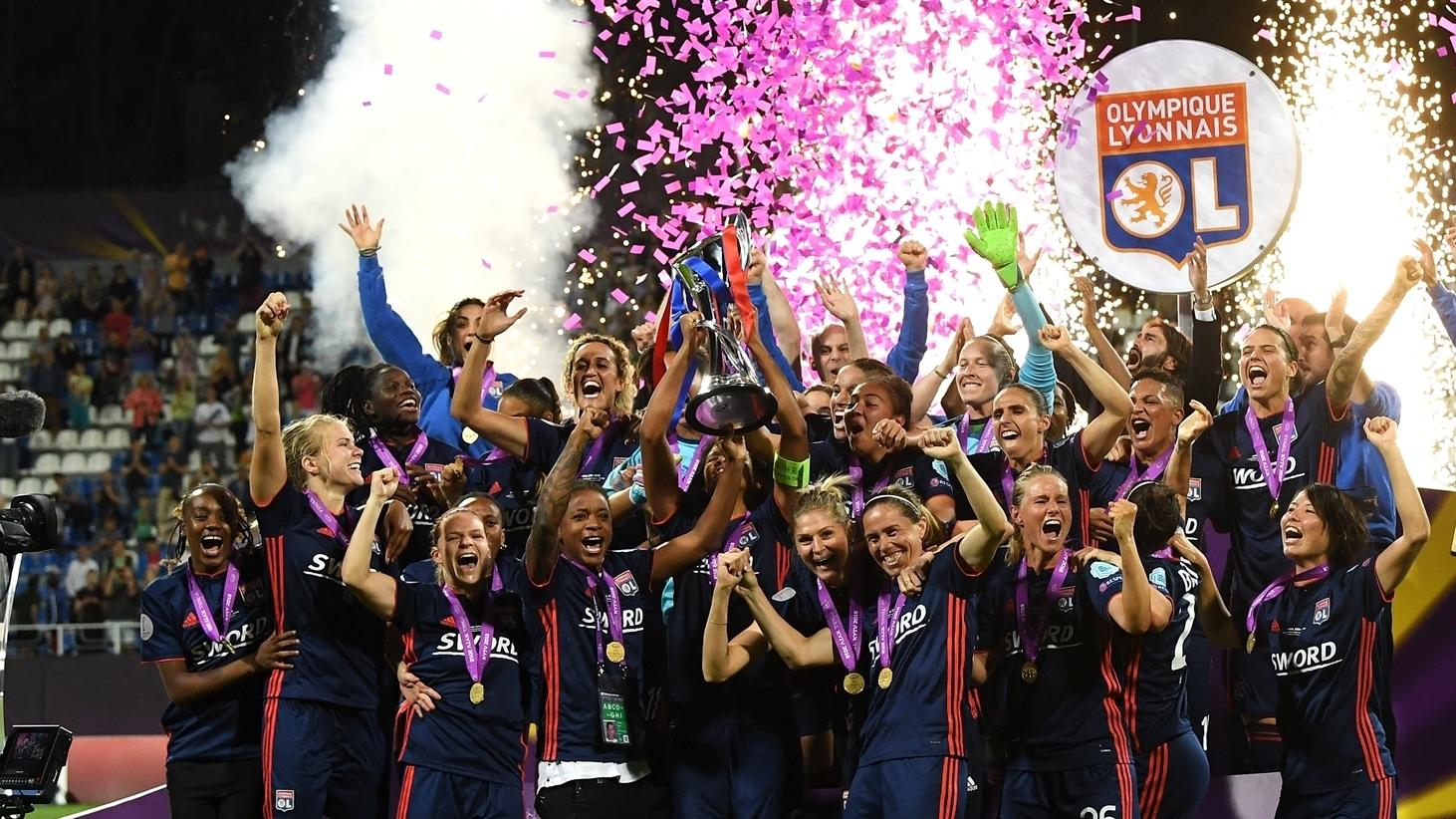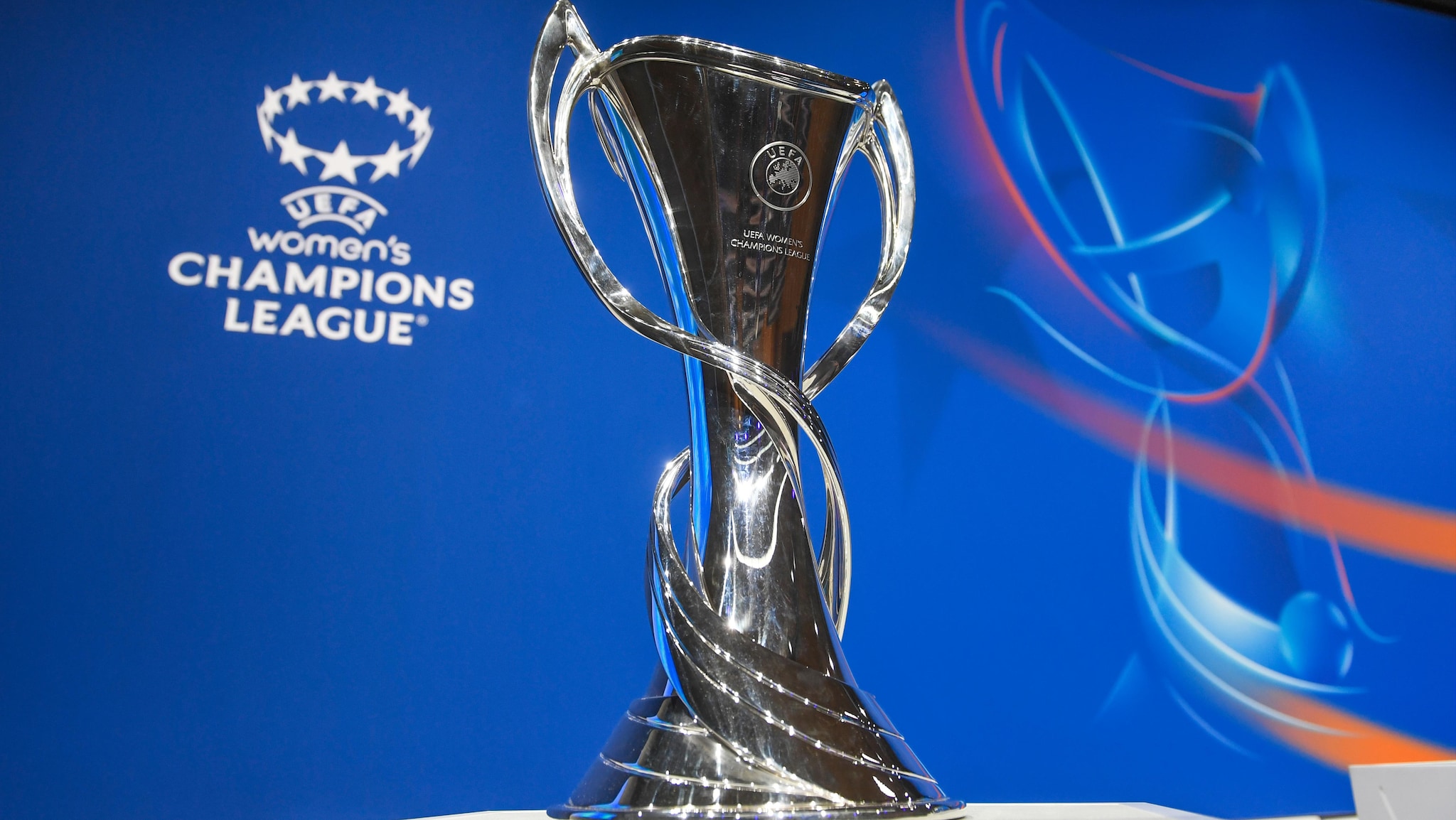UEFA Women's Champions League: The Ultimate Guide To Women's Football Glory
Welcome to the world of UEFA Women's Champions League, where the best female footballers compete for glory on the grandest stage! If you're a football enthusiast, it's time to dive into the thrilling journey of women's football and discover why this competition is rapidly gaining global recognition. Whether you're a die-hard fan or just getting started, the UEFA Women's Champions League offers a spectacle that will leave you captivated.
From nail-biting matches to inspiring stories of female athletes breaking barriers, this league has become the pinnacle of women's football. The UEFA Women's Champions League isn't just a competition; it's a celebration of talent, resilience, and the relentless pursuit of excellence. So, buckle up, because we're about to take you on a wild ride through the history, key players, and everything else you need to know.
In this article, we'll explore the ins and outs of the UEFA Women's Champions League, covering everything from its origins to its current status as a powerhouse in the world of sports. You'll learn about the teams that dominate, the players who shine, and the moments that define this iconic competition. Let's get started!
Table of Contents:
- The History of UEFA Women's Champions League
- Top Teams in the UEFA Women's Champions League
- Iconic Players and Rising Stars
- Key Stats and Records
- Understanding the Competition Format
- The Role of Fans and Supporters
- The Growth of Women's Football
- The Future of the UEFA Women's Champions League
- Challenges Facing Women's Football
- Final Thoughts
The History of UEFA Women's Champions League
Let's kick things off by talking about where it all began. The UEFA Women's Champions League started way back in 2001, but it wasn't always the polished competition we know today. Back then, it was called the UEFA Women's Cup, and it was more of an experiment to see if women's football could attract attention on a continental level. Fast forward to 2009, UEFA rebranded the tournament as the UEFA Women's Champions League, aligning it with its male counterpart.
The early years were a bit rocky, with only a handful of teams participating and limited media coverage. But as the years went by, the league began to evolve, attracting bigger names and more fans. Today, it's one of the most prestigious tournaments in women's football, drawing millions of viewers from around the globe. It's crazy to think how far it's come!
Key Milestones in the League's History
- 2001: The first edition of the UEFA Women's Cup takes place.
- 2009: The tournament is rebranded as the UEFA Women's Champions League.
- 2012: UEFA introduces a new format with a group stage, making the competition more competitive.
- 2018: The first-ever final is held in a stand-alone stadium, marking a significant milestone for women's football.
Top Teams in the UEFA Women's Champions League
Now that we've covered the history, let's talk about the teams that dominate this league. Some clubs have made a name for themselves by consistently performing at the highest level. Lyon, for example, has been a powerhouse in women's football, winning the tournament a staggering eight times. They're like the Barcelona or Real Madrid of the women's game.
Other teams that deserve a shout-out include Wolfsburg, Chelsea, and Barcelona. These clubs have invested heavily in their women's teams, and it shows in their performances on the field. The rivalry between these top teams is intense, and every match feels like a battle for supremacy. It's not just about winning; it's about proving who's the best.
Why These Teams Dominate
- Investment in infrastructure and training facilities.
- Access to top-tier talent from around the world.
- Strong coaching staff and strategic planning.
Iconic Players and Rising Stars
No discussion about the UEFA Women's Champions League is complete without mentioning the players who light up the pitch. From Ada Hegerberg, the first-ever winner of the Ballon d'Or Feminin, to emerging talents like Caroline Graham Hansen, these athletes are the heart and soul of the competition.
Ada Hegerberg, in particular, has been a trailblazer for women's football. Her skills on the field are unmatched, and she's been instrumental in Lyon's success over the years. Then there's Vivianne Miedema, the Dutch striker who's breaking records left, right, and center. These players aren't just athletes; they're role models for young girls around the world.
Meet the Rising Stars
- Sam Kerr (Chelsea): The Australian forward is making waves with her goal-scoring ability.
- Alexia Putellas (Barcelona): The midfield maestro who's leading Barcelona to new heights.
- Samuel Chukwueze (Wolfsburg): Okay, maybe not exactly a "rising star" in women's football, but you get the point!
Key Stats and Records
If you're into numbers, you'll love this section. The UEFA Women's Champions League is full of mind-blowing stats and records that showcase the incredible talent on display. For example, did you know that Lyon has won 8 out of the last 10 editions of the tournament? That's insane!
Another fun fact: Vivianne Miedema holds the record for the most goals scored in the competition, with over 70 goals to her name. And let's not forget about the attendance records. The 2022 final between Barcelona and Wolfsburg drew a crowd of over 91,000 spectators, making it the most attended women's football match in history. These numbers tell a story of growth and popularity.
Records to Watch
- Most goals scored in a single season: 15 by Ada Hegerberg.
- Most consecutive wins: 30 by Lyon.
- Highest attendance: 91,648 for the 2022 final.
Understanding the Competition Format
Now, let's break down how the UEFA Women's Champions League actually works. The competition follows a familiar format, with a group stage followed by knockout rounds. The group stage consists of 16 teams divided into four groups, with the top two teams from each group advancing to the knockout phase.
The knockout rounds are where things get really exciting. From the round of 16 to the final, every match is a battle for survival. The final itself is usually held in a neutral venue, adding an extra layer of drama to the proceedings. It's like a mini World Cup, but with fewer teams and even more intensity.
How Teams Qualify
- Teams from UEFA's top-ranked associations enter the competition directly.
- Lower-ranked teams must go through qualifying rounds to secure a spot.
- The process ensures that the best teams from across Europe get a chance to compete.
The Role of Fans and Supporters
Fans play a crucial role in the success of the UEFA Women's Champions League. Without their support, the competition wouldn't have reached the heights it has today. The atmosphere at matches is electric, with fans creating a sea of color and noise that motivates the players to give their best.
Supporters also play a vital role in promoting the sport. By attending matches, sharing content on social media, and engaging with the community, they help raise awareness and attract new fans. It's a collective effort, and every fan contributes to the growth of women's football in their own way.
How You Can Support
- Attend matches whenever possible.
- Share highlights and news on social media.
- Engage with the community and spread the word.
The Growth of Women's Football
The UEFA Women's Champions League is just one piece of the puzzle when it comes to the growth of women's football. Over the past decade, we've seen a significant increase in investment, media coverage, and participation at all levels. This growth is driven by a combination of factors, including increased funding, better infrastructure, and a shift in societal attitudes.
Gone are the days when women's football was considered a second-class sport. Today, it's a global phenomenon, with millions of fans tuning in to watch matches and follow their favorite players. The UEFA Women's Champions League is at the forefront of this movement, setting the standard for excellence and inspiring young girls to pursue their dreams.
Factors Driving Growth
- Increased media coverage and broadcasting deals.
- Investment from clubs and governing bodies.
- Greater societal acceptance and support for women in sports.
The Future of the UEFA Women's Champions League
Looking ahead, the future of the UEFA Women's Champions League is bright. With continued investment and support, the competition is set to grow even further. UEFA has already announced plans to expand the tournament, increase prize money, and improve facilities for players and fans.
One exciting development is the focus on global expansion. UEFA is working to attract more teams from outside Europe, creating a truly international competition. This will not only raise the level of competition but also introduce new fans to the sport. The possibilities are endless, and the future looks promising for women's football.
What to Expect
- More teams from outside Europe participating.
- Increased prize money and better facilities.
- A global audience tuning in to watch the matches.
Challenges Facing Women's Football
Of course, it's not all sunshine and rainbows. Women's football still faces several challenges that need to be addressed. One of the biggest issues is pay disparity. Despite the growth of the sport, female players still earn significantly less than their male counterparts. This needs to change if we want to create a level playing field.
Another challenge is media coverage. While there has been progress, women's football still doesn't receive the same level of attention as men's football. This limits exposure and makes it harder for players to become household names. Addressing these challenges will require a concerted effort from all stakeholders, including clubs, governing bodies, and the media.
Possible Solutions
- Equal pay for male and female players.
- Increased media coverage and broadcasting deals.
- Investment in grassroots programs to develop talent.
Final Thoughts
And there you have it, folks! The UEFA Women's Champions League is more than just a competition; it's a celebration of women's football and the incredible talent it showcases. From its humble beginnings to its current status as a global phenomenon, this league has come a long way. It's a testament to the hard work and dedication of players, coaches, and supporters who believe in the power of sport to bring about change.
So, what can you do to be part of this movement? Attend matches, share content, and support the players and teams you love. Together, we can create a brighter future for women's football and ensure that the UEFA Women's Champions League continues to thrive. Remember, every fan plays a role in this journey, and your support matters!
Now, go out there and spread the word. Share this article with your friends, leave a comment, and let us know what you think. The UEFA Women's Champions League is just getting started, and the best is yet to come!
ETSU Baseball: Your Ultimate Guide To The Buccaneers' Powerhouse
Trump Releases Over 2,000 New JFK Assassination Files: What We Know
Plane Crash Off Caribbean Island Kills At Least 12, Including Music Star

UEFA Women's Champions League history UEFA Women's Champions League

The UEFA Women's Champions League trophy UEFA Women's Champions

Every UEFA Women's Champions League Player of the Match UEFA Women's